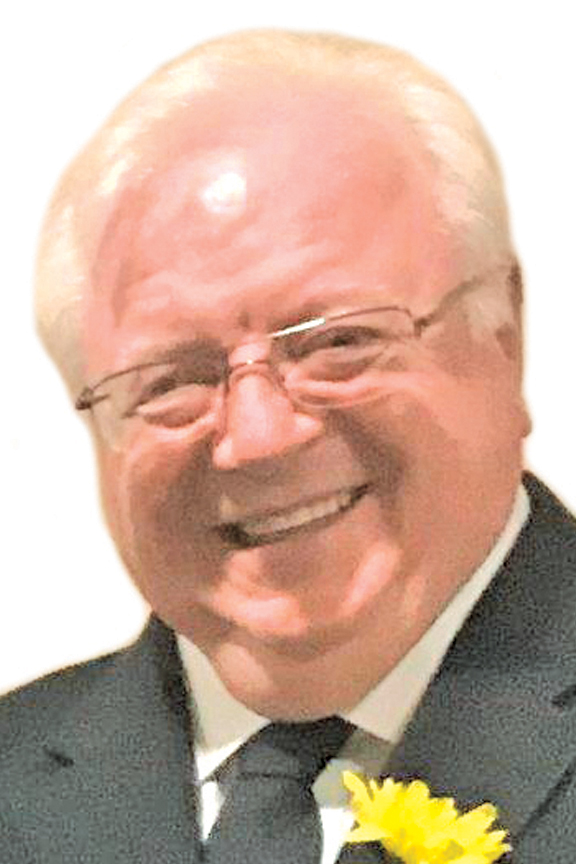Bible Studies for Life: March 28
The Death of Jesus • John 19:8-11, 16b-18, 28-30
By Don Schuman

What happens when the destructive nature of sin is met with the holy and gracious nature of God? Our lesson today captures that collision. This lesson shows the nature of sin at its worst, versus the nature of God at His best.
Jesus Faced the Cross Fearlessly (19:8-11). The previous lesson about the nature of sin used Isaiah 59. Isaiah 53 portrays this scene in John 19. First, as Isaiah 53:7 describes, Jesus was oppressed and afflicted but He did not open His mouth to rail against His oppressors or plead for His life.
He was like a lamb led to the slaughter, in His case to the sacrifice. Secondly, as Isaiah 53:3-4 says, Jesus was despised and rejected by men. The mob demanded His crucifixion and Pilate, after three times declaring that he found no fault in this man, gave the order for Jesus’ death.
Pilate feared the mob, the mob feared Jesus might be freed, but Jesus, trusting the perfect will of the Father, had no fear.
Perfect love removes fear (1 John 4:18), and Jesus is perfect Love incarnate. Jesus faced the cross fearlessly, not out of despair of life but out of love for God the Father and for sinners who need a Savior. He could have prayed to the Father and He would have been given twelve legions of angels to deliver Him (Matt. 26:53), but He faced the cross because His cross was our only hope.
Jesus Bore the Cross Willingly (19:16b-18). After Pilate presented Jesus to the unrelenting mob, he turned Jesus over to the Roman soldiers for crucifixion. Jesus did not plead with the bloodthirsty crowd. He did not try to bargain with the Roman soldiers or request that they show some mercy. He did not resist or try to run. He bore the cross willingly.
Jesus was crucified like the worst of criminals, between two criminals. Crucifixion was a shameful execution that Jesus bore willingly, “despising the shame” (Heb. 12:2). The crimes of the two men on either side of Jesus deserved the sentence of death. Likewise, our sins — crimes against God — deserve the sentence of death.
A handful of people grieved to behold the Son of God treated so (19:25). Sin hurts. Its very nature brings sorrow and death (James 1:15). Sin hurts God. Sin put His beloved Son on that cross. Sin hurts others. Never get the idea that you are only hurting yourself when you sin. We hurt others, either directly or indirectly, with sin.
Jesus Finished the Work Triumphantly (19:28-30). The Jewish leaders thought they were in control of this situation, forcing Pilate to give the order to crucify Jesus. Pilate thought he was in control by avoiding an uprising and a bad report to Caesar, his boss. The Roman soldiers thought they were in control by scourging and crucifying Jesus.
Satan thought he was in control by tempting these sinful hearts. God was actually in control, giving His Son as the sacrifice for the sins of the world, so that whosever believes should not perish but have everlasting life.
That statement, “It is finished,” is rich in meaning. The original Greek form is one word and means not only “it is finished,” but also “it is accomplished,” and “price paid in full.” What had Jesus accomplished? He had fulfilled the Scriptures concerning Himself and His first coming as the Sacrificial Lamb of God.
On the cross, He revealed the glory of God’s love (1 Pet. 3:18, Rom. 5:8). He completed the atonement for sin (2 Cor. 15:15,21). He finished the work of redemption (Gal. 3:13). He defeated the devil (Heb. 2:14-15).
Out of the greatest wrong, God made the greatest right. Sinful men did their worst. Jesus did His best, far beyond our abilities, dying triumphantly on the cross so that by faith in Him as Lord and Savior, sinners could be saved of the wages of sin, which is death. The blood that Jesus shed on the cross cleanses sinners of all unrighteousness in the sight of God the Father.
No more do believers face everlasting shame and destruction. Instead, believers in Christ have the hope of everlasting life. The death of Jesus brings those who believe in Him abundant and everlasting life.
Schuman is pastor of Temple Church, Myrtle.